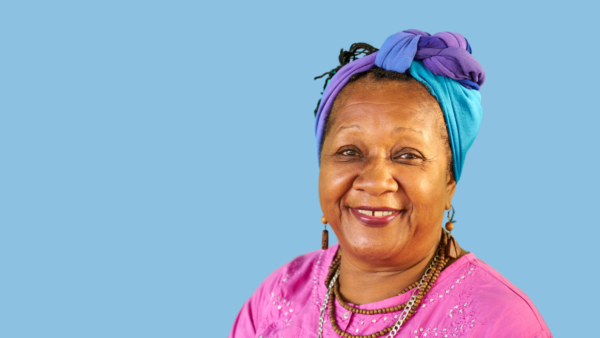‘Comparison is the thief of joy’ is a quote attributed to US President Theodore Roosevelt, but we’ll bring it up to date by swapping the word ‘joy’ with the word ‘happiness’, which seems to be something most people are looking for in their lives. But what does it mean? Well, it’s a direct challenge to our very human behaviour of comparing with others in order to make judgements about ourselves. And the quote suggests that the very act of doing this can risk sapping our pleasure in life, even eroding our happiness bit by bit over time. So, how we can get the best from this natural behaviour and maybe build some new habits in the process.
The basis of humans comparing – something called social comparison theory
So a little info on social comparison theory – first put forward about 60 years ago by a social psychologist called Leon Festinger. The theory goes that we humans are social animals that make judgements about the world and about ourselves often using concrete facts and by making subjective judgements where we’re not sure about the facts. This often leads us to rely on how other people are doing/looking/running/wearing/getting paid to see how we’re doing, relatively speaking. It’s a basic human drive…we do it to make decisions or to influence our mood. There are two directions of comparison apparently – upward comparison…where you seek out people for comparison who are better or better off than you in some way. And downward comparison, where you look for people who are worse or worse off than you in some way. And unsurprisingly, unless you’re doing it to set yourself a target or look for a role model of something, upward comparison generally tends to make you feel worse about yourself. And downward comparison generally makes you feel better about yourself.
Social comparison in the modern world, and its dangers
So bringing all that in today’s world, it’s always been the case that there have been lots of downward comparison and upward comparison examples for us to pick from, but today there are so many more, thanks to the internet and social media, which really typifies the importance for people of social comparison as so much of the content we see relates to comparison – numbers of likes, coolness of pictures, number of comments, apparent awesomeness of life being lived. So  the dangers of this in terms of our well-being are that we may keep picking people to compare ourselves with who are unrealistically ‘superior’ to us in some way (like pop stars, movie stars, sports stars, world leaders) and then we make a whole bunch of assumptions about what we think we see in them and their lives that we think makes them superior, and before we know it, we’re in some pretty depressing territory when we evaluate our own lives/annual pay/car/hair/abs/holiday choices/pets against the best of the best in each of the above categories. And since everyone is in the business of using social media to propel themselves another rung up the social comparison ladder, your chosen points of comparison can get out of reach pretty quickly and that can hit you where it hurts.
the dangers of this in terms of our well-being are that we may keep picking people to compare ourselves with who are unrealistically ‘superior’ to us in some way (like pop stars, movie stars, sports stars, world leaders) and then we make a whole bunch of assumptions about what we think we see in them and their lives that we think makes them superior, and before we know it, we’re in some pretty depressing territory when we evaluate our own lives/annual pay/car/hair/abs/holiday choices/pets against the best of the best in each of the above categories. And since everyone is in the business of using social media to propel themselves another rung up the social comparison ladder, your chosen points of comparison can get out of reach pretty quickly and that can hit you where it hurts.
So the point here is to beware social comparison, it can hit you right in the ego and if your self-esteem is feeling a little fragile, that may be really unhelpful for your overall sense of well-being and even mental health.
Some practical tools and tips for taming your comparison monkey
So, what can you do to avoid comparison stealing your happiness…here are top 4 tips:
- Look for objective evidence, be balanced. If you’re making judgments about yourself, can you get some more facts involved? Has your weight really gone up permanently compared to your friends or have you just been overindulging at Christmas just like everyone else? What do your friends think about that thing that’s been on your mind recently…that you’ve got stuck in a bit of a rut compared to them…do they see this? Are they thinking this about themselves. Don’t sit on it, have a chat. Is your pay really lower than everyone else’s in a similar role to you…do you know that? Do you know what the median pay is for your job? Are there more factors in why you do what you do rather than just what you take home in your pay packet each week or month? So number 1; look for evidence.
- Be realistic in picking your points of comparison. Pop stars, sports stars, movie stars aren’t generally the most realistic
 people to aspire to be and to compare yourself with unless you’re genuinely committed to following one of those career paths. So if you want to pick points of comparison, pick people a little closer to home, a little more realistic and relevant to your life. And try not to make so many assumptions about the apparent awesomeness of other people’s lives versus yours AND be appreciative of the awesome aspects of your own life, possibly even using a downward comparison, with others less fortunate than you, to feel better, or at least more realistic, about your lot.
people to aspire to be and to compare yourself with unless you’re genuinely committed to following one of those career paths. So if you want to pick points of comparison, pick people a little closer to home, a little more realistic and relevant to your life. And try not to make so many assumptions about the apparent awesomeness of other people’s lives versus yours AND be appreciative of the awesome aspects of your own life, possibly even using a downward comparison, with others less fortunate than you, to feel better, or at least more realistic, about your lot. - Be kind to yourself; see yourself, and everyone else, as a work in progress – no one is a finished article, we’re all an experiment and if we see everyone in the world in that way, even the great and the good, comparison becomes less daunting because at least we can give things a try and be prepared to fail, because you have to do that if you want to learn. Also, be real about the good things that you already bring to the world and practice some self-compassion…recognise the good things you’ve done and that you do and that you’re proud of, as that makes upward social comparison less risky and is really helpful for our sense of self-esteem and well-being.
- Get good at being in the moment, being present, enjoying; let comparisons go. Even when you can’t go to switch off, it’s always good to get some practice on being mindful and appreciative and present, because it means you can be more grounded in the reality of the moment, rather than the transient world of comparison and assumption.
So 4 things there for getting control of the comparison monkey: look for objective evidence, be realistic about who you compare with, be kind to yourself and get good at being in the now.
Did you know this blog is also available as a podcast along with some other incredible content? Check it out on iTunes, Spotify, Acast.











